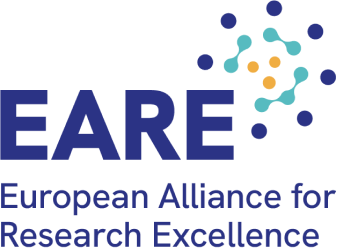
EARE’s answer to the European Commission’s draft Data Governance Act
The European Alliance for Research Excellence, a coalition of companies and research organisations formed in 2017 committed to the future of innovation and R&D in Europe, warmly welcomes the possibility to comment on the European Commission’s draft Data Governance Act.
Members of the European Alliance for Research Excellence (EARE) support the principles of voluntary, trustworthy and responsible data sharing and enhanced access to public sector data for European innovators that underpin the EU’s Data Governance Act. However, the current text includes ambiguity that may create legal uncertainty and undermine trust in the proposed data sharing frameworks.
We believe that the principles underlying the Data Governance Act will encourage trustworthy and responsible data sharing and the re-use of public sector data in Europe, which offers vast potential for economic growth and can help generate insights to address some of society’s biggest challenges, from healthcare to the environment. To foster trust in data sharing frameworks, greater clarity is needed on the scope of data sharing intermediaries and the role they play in the emerging data sharing ecosystem, together with encouraging the free flow of non-personal data across borders.
The Data Governance Act is a first step towards the implementation of a European single market for data. EARE members believe that creating clear rules for access and re-use of data between all actors of the data economy, to encourage innovation, will incentivise data sharing in Europe. While some aspects remain to be clarified, the Data Governance Act starts to provide an answer to the challenges identified above by:
– Opening up more public sector data: the provisions outlined in Chapter II of the draft regulation are a good step forward to foster increased collaboration and reuse of public sector data;
– Encouraging trust, and standardisation while reducing the transaction costs of data sharing, through the establishment of standards that promote usability and accessibility of data. By promoting the adoption of internationally recognized technical and security standards to format, structure and share data, the EU can realize its vision for a Single Market for Data. Further, to help alleviate the burden on participants in the data sharing eco-system, the Commission should support the creation and adoption of model data sharing agreements. Model agreements can help reduce the “frictions” that today deter organizations from sharing data.
– Encourage alternative models in the data sharing ecosystem: to encourage enhanced access to data, individuals and organizations should have options to choose a model of data sharing best suited to their scenario. We support the emergence of innovative models, such as data sharing intermediaries as envisioned in the DGA, that sit alongside existing models of voluntary data sharing, including data sharing governed by private contract. The goals of Chapter III, including that access to data sharing services are fair, transparent and non-discriminatory, and prevent fraudulent practices, if properly implemented, will help to encourage trust in alternative models of data sharing, and may unlock the ability for more value to be realized from data when shared across sectors.
– Developing frameworks that encourage the cross-border flow of data, while protecting intellectual property rights: we support balanced intellectual property laws that protect commercially sensitive information, while providing robust exceptions for the access and use of data for analysis and innovation, without restricting the cross-border flow of data. The possibility to collaborate on data projects across borders, and leverage diverse perspectives and resources is one of the key benefits that data sharing offers and should only be enhanced and not restricted.
Submission available online here.


